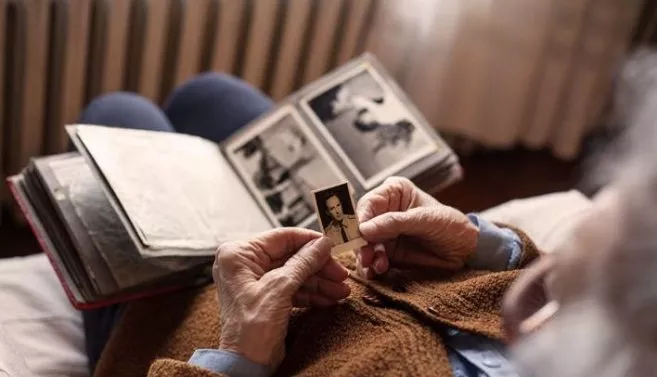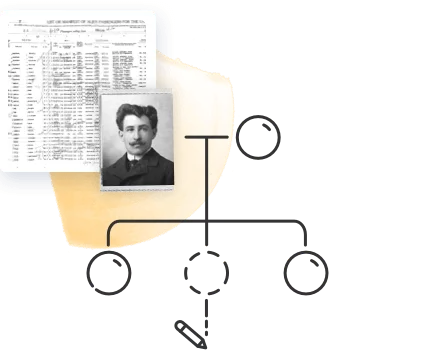
If you’re setting out to learn more about your family’s roots, there’s no doubt that the journey will be incredibly rewarding. Knowing more about who your ancestors were helps you understand more about who you are now — and gives you the tools to create a better future for yourself and your family.
When you sit down to get started, the road ahead might appear daunting. There’s so much to learn and so much work to be done. How will you find the information you need? How will you document it to ensure that it’s accurate and will be preserved for future generations? As a genealogist, you will learn a wide range of skills. You’ll become a historian, a psychologist, a cartographer, a researcher, a linguist, and a paleographer — all rolled into one.
We’ll explore how to interview relatives to gather information for your family tree, specifically elderly family members.
How to Interview Relatives
If you’re planning to research your family’s past, interviewing your older relatives is the perfect place to start. The elders of your family carry, in their memories, a wealth of valuable information — and the time to record that information is now.
It’s best to start with your oldest living relative to capture the unique information only they can provide. There may, however, be another, younger relative who has already done some genealogical research and collected family information. These people are treasure troves! As you progress in your research, you may find more of them. You’ll be able to corroborate information you acquire, compare notes, share records and family stories, and copy each other’s family trees.
Don’t stop at one family member, either. Great-aunts and -uncles, cousins, and more distant relatives may also be a wealth of information. Make a list of family members you’d like to interview and prioritize them, with eldest relatives first.
If you live far away, you may not be able to conduct interviews in person — and even if you plan to visit soon, begin with a telephone interview.
Preparing for the Interview
Make sure to set aside adequate time for the interview. It may take multiple sessions of several hours each. How many and how long the sessions will be depend on varying factors — the health and stamina of your interviewee, for example, and how much information they have to share. The more time you have, the better.
Still, to make the most of the time with your relative, it’s a good idea to prepare ahead of time. Have questions and equipment ready and, if possible, ask if they can search or ask around for family records and photographs and have them available when you visit.
Equipment you might want to bring:
- A notebook and pen.
- A voice recorder or video camera. Recording the interview frees you from taking notes and ensures you won’t miss a single detail. Additionally, a video of Grandma telling stories about her family might be a valuable asset to you and to your descendants. The free MyHeritage mobile app has an audio recording feature that allows you to add the recordings directly to your MyHeritage family tree. The recordings made on the app are stored in the profile of the person you’re interviewing, and they can be accessed at any time on the family site or on the mobile app.
- A digital camera and scanner. These can help easily document memorabilia and make copies of family photographs and documents. You can even use your smartphone as a scanner, which is easy to do on the MyHeritage mobile app. Our digital scanner feature creates high-quality images of photographs and documents, allowing you to tag relatives, add details and descriptions, and catalog each file in the appropriate section of your family tree.
- The MyHeritage mobile app is a great way to record relatives and scan photos and documents directly to your family tree
- A bottle of water or tea for each of you. There will be much talking and throats can get dry!
General Questions to Ask
Here are some examples of questions you may want to ask your relatives to help add information to your family tree. Always remember to ask open-ended questions; these will get you much more information than questions that can be answered simply with “yes or “no.”
- Where were you born? What was the first home you remember?
- Where were your parents born?
- Did you or your family move or immigrate during your lifetime? From where to where, and when?
- How many siblings did your parents have? What were their names? Do you know where they were born, or where their parents were from?
- What are some family stories you remember?
- What was your first language? What language did your parents speak?
- Do you remember anyone in our family fighting in a war? If so, which war?
- What do your first name and surname/s mean? Do you know why you were named that?
- Did you change your name over the course of your life? If so, why, and what was your previous name?
- What were your parents’ names and surnames? Do you remember their parents’ names and surnames?
- How did you meet your spouse?
- What do you remember about your spouse’s family?
You can find a much longer list of detailed questions to ask in this post, but remember that bombarding your relative with too many questions may be overwhelming. Decide what information is most important and craft your interview to focus on that information. Once the most pressing questions are answered, explore additional memories and stories. Also remember that some people have more of a visual memory than an auditory one, so it may be easier for them to remember details if you draw a family tree or look at family photographs together.
Looking through photos during the interview can help relatives remember details
Reviewing Family Memorabilia
Family photographs, heirlooms, and other memorabilia are some of our most prized possessions. Most elderly relatives will be delighted to look through them with you — and doing so may bring up additional memories.
Some items you may want to ask your relative to show you or bring to the interview yourself to jog their memories:
- Family photographs
- Old letters and invitations to weddings or other life-cycle events
- Yearbooks
- Newspaper clippings
- Records such as birth, death, and marriage certificates
- Educational records such as report cards and diplomas
- Military records
- Religious documents such as baptism or marriage record
- Family heirlooms, such as jewelry, religious items, books, and artwork
- Other objects that have personal meaning in the context of family
Family photos, documents, and memorabilia to bring to an interview
As you go through these items together, ask whom they belonged to, where and when they were acquired, what they were used for, and if your relative can remember any stories about them. Make sure to take organized notes (or audio record answers after describing the particular item) — especially about the photographs, so you remember who is who.
Be Sensitive
Remember that while many elderly people enjoy the opportunity to reminisce and share family stories, sometimes there may be sensitive or painful memories that may be hard for your relative to talk about. There may be traumatic memories associated with certain events or family members, or the feelings about recently losing a loved one may still be raw. Do your best to be supportive, and don’t push your relative too hard if it seems they are having a difficult time. Offer to take a break or make a cup of tea, and keep going when they are ready.
Be supportive and take frequent breaks together
Before You Go
When you’re wrapping up, don’t forget to ask your relative if there’s anything they would like to add, or that they wish you had asked about. Invite them to call or write to you if they remember any stories or information they would like to share later.
Putting It All Together
Once you have completed your interview, you’ll need to organize the information you’ve acquired in a way that will make it easy for you and others to access. Sites like MyHeritage make it easy to build a family tree, store records, and share all that information with your relatives. You might want to compile an album or scrapbook with what you’ve found — and the relative you interviewed will probably be delighted to receive a copy if you prepare a digital photo book.


